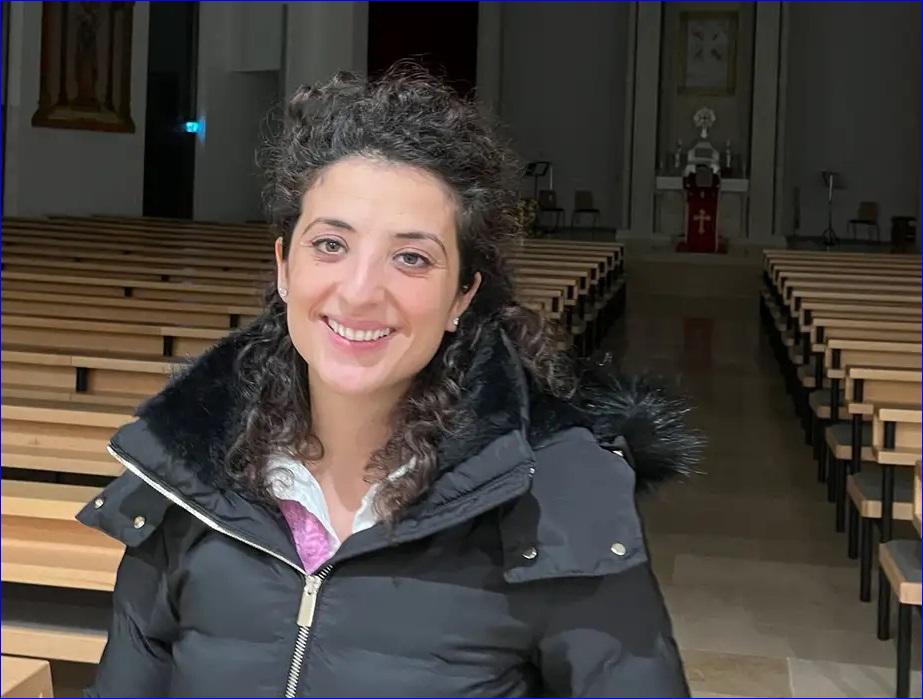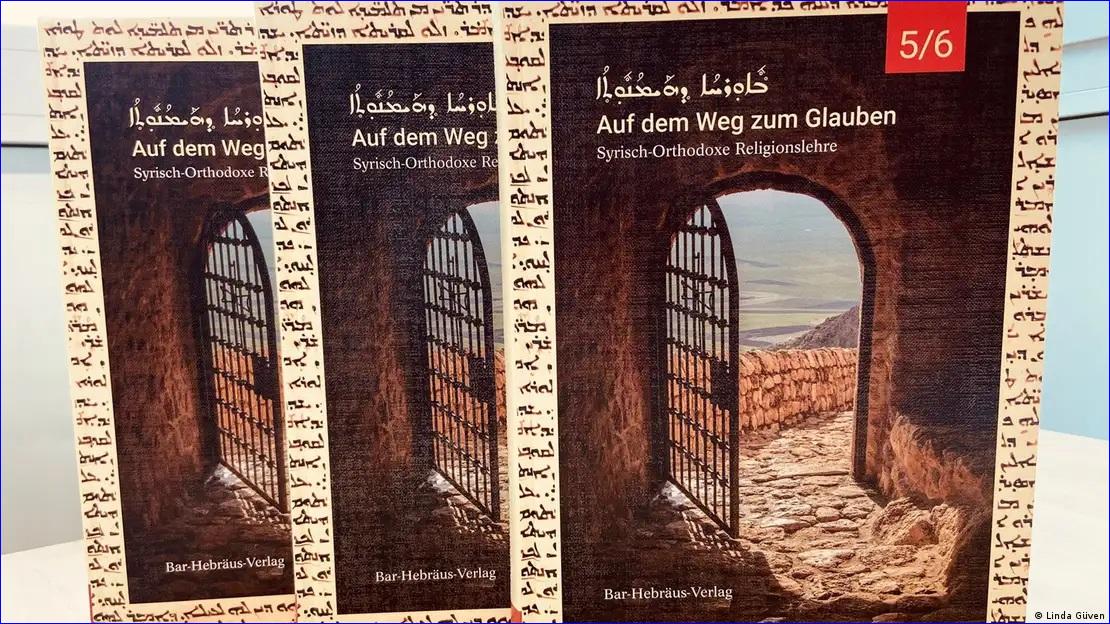


"We have believers here who came here as young guest workers over 50 years ago," explains Güven. "But there are also people who had to leave home in the 1990s. And now refugees who have come to us from Iraq or because of the civil war in Syria over the past ten years."
Broken German and Swabian
For a long time, the Syrian Orthodox Christians from Bietigheim-Bissingen and some neighbouring villages have had their common meeting place on the edge of a commercial area. The municipality invites you to a pensioner's meeting once a month. The youngest come to the Krabbel group on Sunday after Sunday, and there is a lively youth work.
The old community members may only speak broken German. With some of the younger ones, Swabian sounds mingle with the perfect High German Swabian tones. "Anyone who has lived here for two or three generations is often established and has studied. We have doctors, lawyers, teachers in the community," says the teacher.
Syriac Orthodox Christians, according to Güven, always relied on the Church. "We have no consulate, no representation abroad, because we have no state. The first port of call remains the church. There is a halt searching. And therefore, the clergymen also tried to help and mediate with the communities."
The region of origin of the Syrian Orthodox Church is today's Antakya in Turkey. A city where a Christian community emerged very early after the death of Jesus, one of the first ever. This region in south-eastern Turkey and northern Syria is originally home to the Syrian Orthodox Church. Jesus spoke Aramaic
Their language shows how old their tradition is. For the members of this Church speak among themselves and also in the liturgy of Aramaic. Internationally, Aramaic has long been part of the group of endangered languages.
It is considered - scientifically assured - as the language of Jesus: Thus spoke the man from Nazareth, who became the founder of religion. The Gospel of Matthew and Matthew quote in the description of Jesus' death as his last word on the cross a desperate exclamation, in Greek Scripture, but remarkably in Aramaic language: "Eloi eloi lamma sabachthani - my God, my God, why have you forsaken me?"
The story of the Aramaic Christians could be told worldwide. Only a few tens of thousands of them live in the old homeland, in the mountainous region of the Turabdin in south-eastern Turkey. Today, the approximately five million members of this church live literally scattered around the world: in Australia, India or the USA, in Latin America and European countries. This is due to many waves of persecution by the Ottoman Empire from 1915 onwards, to which well over a million Christians fell victim, including hundreds of thousands of Syrian Orthodox Christians. Aramaic communities throughout Germany.

It is possible that there are more than 120,000 speakers in Germany today. The larger West German federal states have legally recognised the Syrian Orthodox Church and, for example, enable religious education. And while Catholics and Protestants report hundreds of thousands of church leave year after year and give up church buildings due to falling membership numbers, Orthodox and oriental churches from the Middle East are establishing themselves.
In many towns and municipalities, predominantly in the western federal states, there are a good 60 Aramaic-speaking parishes. Her Archbishop Mor Philoxenus Mattias Nayis resides in Warburg in Westphalia. The Syro-Aramaeans adopted an earlier Catholic monastery decades ago.
Linda Güven has a mission. The trained teacher is not only allowed to teach English, history and Catholic religion. She was also trained in the specialist theology and religious education for the Syriac Orthodox Church at the Schwäbisch Gmünd University of Education, which has been offering a corresponding degree course since autumn 2021. Until now, priests of the church, who mostly had learned decades ago in the Turabdin, gave religious education to school. Now there are teachers trained in Germany.
Since the middle of 2023, Güven has been the first state-approved religion teacher for Syrian Orthodox children in Germany. It proudly shows the book On the Way to the Syrian Orthodox Orthodox Church in the German language by the religious pedagogue Josef Önder with students in German language : "The first Syriac Orthodox religious book for schools in the world, which was developed according to an educational plan."
Many pictures in the textbook show simple scenes of country life. "This is what makes us apart when you go back to the roots," explains Güven. "Our parents or grandparents were in many cases shepherds or farmers. The Turabdin - this is an agricultural region." The students would have access to this world of images.
When Güven tells, you can feel her enthusiasm. "I'm burning for the thing, because it's simply a matter of concern to me." She wants to religiously "provide children a home" and "strengthen them in their identity". This also includes the Aramaic, "the language is part of our identity." If they earn religious education, start every hour with a prayer of the "Our Father" in Aramaic language.
So far, Güven has taught pupils from several classes at two schools who come together in groups. "80 to 85 in total from different years," she says, "Tendent increasing."
She has set herself a new goal: Güven wants to write a doctoral thesis soon. In this way, she also wants to provide scientific work on her religion in school and community.

or register to post a comment.